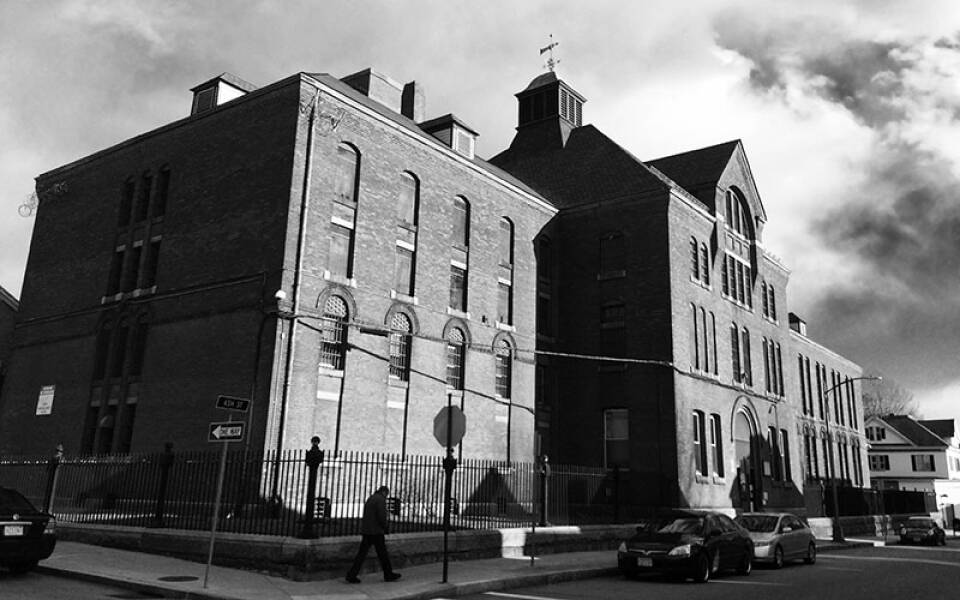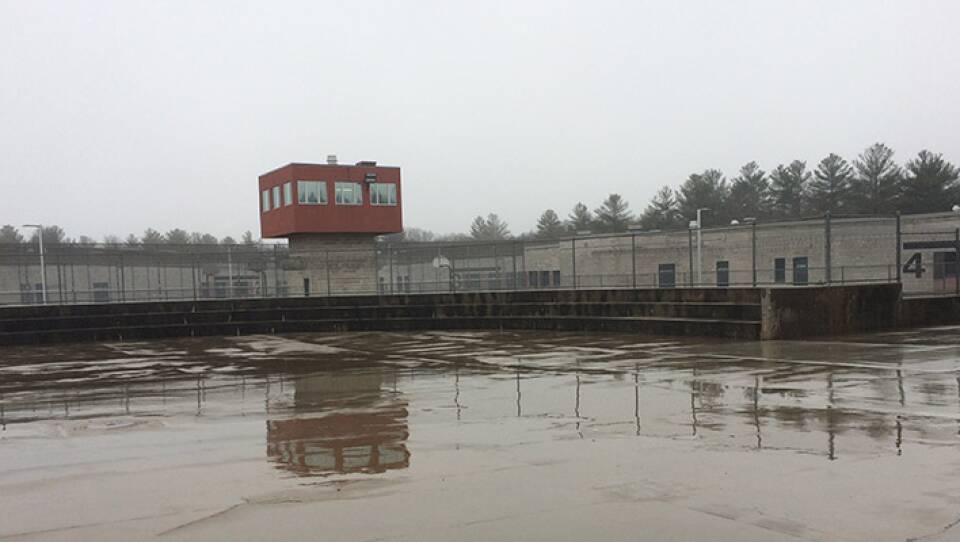With jail suicide numbers as high as Bristol County’s, you might think Sheriff Thomas Hodgson would have hit the panic button or declared a crisis.
You’d be wrong.
“Statistics can certainly be looked at from every which way to Tuesday,” said Hodgson in a recent interview.
But it’s hard to look at county statistics and not see a sharp contrast between Bristol and other urban counties in Massachusetts. Since 2006, Bristol has had 50 percent more suicides than Suffolk County and more than twice as many as Essex and Worcester.
Bristol County’s jail in North Dartmouth operates at 300 percent of design capacity, according to a report just released by the State Executive Office of Public Safety. Experts say overcrowded jails can set the stage for suicide, increasing stress on inmates and correctional officers.
Hodgson, who is outspoken on hardline policies such as offering up his inmates to help build President Trump’s border wall, said overcrowding is not the problem. He blamed high suicide numbers on social problems, especially the opioid addiction crisis in his county.
“We’re one of those counties with cities that have very, very serious problems with regards to drug use and lack of structure for families and kids,” said Hodgson.
But the sheriff doesn’t actually know how many of the recent inmates who killed themselves were drug addicts or in detox. His jail doesn’t track that.
Bristol County’s jail superintendent Steven Souza, a 30-year veteran in corrections, contends there’s no foolproof way to prevent jail suicides. And he says you can’t always trust the inmates who talk about it.
“Inmates will threaten suicide because they want to get to the medical unit with air conditioning. You have to determine the threat level,” he said, during a recent tour of the jail in North Dartmouth. “If I were to put them on watch, then let them have everything, what purpose does it serve?”
Souza is similarly skeptical about defendants and inmates in a courtroom who make threats about suicide. Sometimes those threats are just aimed at pressuring family members to bail them out, said Souza.
But Bristol County Jail has faced sharp criticism that it ignores official warnings from local courts about inmates at immediate risk of suicide.
Two years ago, a judge warned Bristol County Jail to keep a close watch on Brandon St. Pierre, after the 32-year-old told a court psychologist of his desire to kill himself.
“The doctor took it seriously. The judge took it seriously. I took it seriously,” said Nicolas Gordon, St. Pierre’s defense attorney. “Nothing was done to protect this young man.”
The judge gave St. Pierre a Q5 classification, meaning high-risk for suicide. But the day after returning to Bristol’s jail from court, he got into fight. He was sent to a segregated unit, a solo cell used to discipline inmates.
They’re locked down for 23 hours a day. Meals are slid through a small slot in the cell door. That’s where St. Pierre hanged himself.
The danger of segregation is that it’s where more than half of jail suicides happen, said James Pingeon, a lawyer at Prisoner Legal Services in Boston.

“That’s one of the problems at Bristol particularly, that they use segregation basically as a management tool for the mentally ill,” he said.
Prisoner Legal Services has sued Bristol County twice. And they call Bristol County’s jail a “hell-hole.”
Former inmate Jamal Jones doesn’t go quite that far in his assessment of the jail.
But Jones – who was released in January after a 13-month sentence – criticized the thinly-staffed mental health program at the jail and how difficult it was to get help.
“They’ve got one counselor to about 100 people. I don’t think they’re addressing it in the right way, I really don’t,” said Jones. “They had a sign-in sheet. If they wanted to see you, you would get seen.”
Bristol County did not respond to a public records request asking for details on its mental health staffing.
One counselor for every 100 inmates is double the caseload of some state prisons. Hampden County has 10 full-time mental health clinicians for an average of 1,433 inmates, while Bristol County has three for some 1,350 inmates, according to the Massachusetts Sheriffs’ Association.
But Sheriff Hodgson and Superintendent Souza believe their mental health program is doing just fine. In fact, the sheriff said that Jorge Veliz -- the owner of the for-profit company running the program -- was “brilliant.”
Correctional Psychiatric Services is owned by Veliz, a psychiatrist, and has contracts with five county sheriffs in the state. The contract with Bristol County is worth $8.2 million.
Veliz shares the viewpoint with Hodgson that it’s hard to predict all suicides.
“I’ve been in corrections for 35 years, and it’s very difficult to understand it. Sometimes you talk to a person. He’s totally fine. He tells you nothing is wrong, and he’s happy. And two hours later, he hangs himself,” said Veliz. “There’s no way to explain.”
Hodgson and Souza say if there’s anything that needs changing in their county jail, it’s state funding. They say that other county jails with hundreds fewer inmates get millions of dollars more in state funds than Bristol County.
The Eye is the online news site of the New England Center for Investigative Reporting, based at Boston University and WGBH Public Radio. Shaz Sajadi, Miranda Suarez, Debora Almeida, and Kaylie Piecuch contributed to this report. Chris Burrell can be reached at burrellc@bu.edu . Jenifer McKim can be reached at jenifer.mckim@necir.org . For more on this article, go to eye.necir.org .





